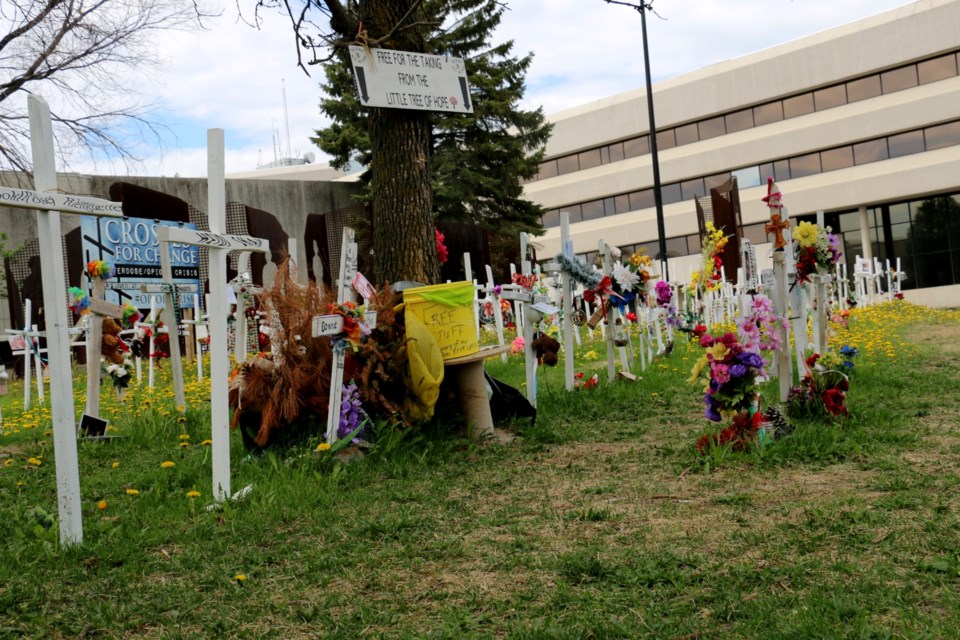Ontario nurses are saying that "simple drug possession" should be decriminalized as a means of fighting the opioid crisis and they want municipal mayoral candidates to support the idea.
The Registered Nurses Association of Ontario (RNAO) said mayoral candidates in Ontario can save lives by joining other Canadian cities to lobby the federal government to change the laws to forgive anyone found in possession of smaller amounts of certain substances; the idea being that by removing criminality from the equation, some substance users might be more willing to seek
"In 2021, preliminary data from Public Health Ontario reported an average of eight people per day died from an opioid-related overdose across the province – an
alarming 85-per-cent increase over pre-pandemic levels," said the RNAO news release.
It was close to the same time that Public Health Sudbury and Districts revealed that Greater Sudbury had the highest per capita opioid overdose death rate in Ontario.
The RNAO has just launched a #DecriminalizeNow campaign to encourage mayoral candidates running for mayor to support the harm reduction approach taken in cities such as Montreal, Edmonton and Vancouver.
"Those cities have passed motions urging the federal government to decriminalize simple drug possession in their jurisdictions under the Controlled Drugs and Substances Act (CDSA). The Vancouver council’s motion triggered a three-year exemption from the CDSA for British Columbia that will go into effect on Jan. 31, 2023. Under the exemption, anyone 18 or older will not be arrested or charged for possessing up to 2.5 grams of certain illicit drugs.
The exemption passed for B.C. is the first time such a move has been approved by the federal government.
"This exemption is not legalization. These substances remain illegal, but adults who have 2.5 grams or less of the certain illicit substances for personal use will no longer be arrested, charged or have their drugs seized. Instead, police will offer information on available health and social supports and will help with referrals when requested," said Health Canada.
Dr. Doris Grinspun, the CEO of the RNAO said the opioid crisis should not be seen as a criminal problem, but as a public health issue.
"Every life lost due to an accidental overdose could have been prevented if appropriate supports and measures were readily available and easily accessible to individuals when they need it,” Grinspun said.
“Decriminalizing simple drug possession is a crucial step to remove the stigma associated with substance use as well as the barriers to health care that often force people to use alone. Individuals at risk need to know they are not alone, and decriminalization is one way to provide that reassurance.”
RNAO President Dr. Claudette Holloway said that prevention is a better solution.
“Nurses have been sounding the alarm on this preventable health crisis and offering evidence-based substance use policy since before the pandemic, yet we have continued to see the number of deaths, hospitalizations and emergency visits soar due to limited or no direct services and supports and an increasingly toxic drug supply,” Holloway said.
“Through this campaign, we are urging mayoral candidates to confront the impacts of the overdose crisis in their cities and to take action upon election.”
Len Gillis covers health care and mining for Sudbury.com.
